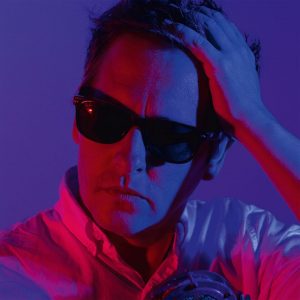Josh Rouse has gone out on a ledge for his new album, Love In The Modern Age. At the heart of it he’s  always been a man with a guitar, yet on his latest the guitar has been set aside and replaced with a variety of keyboards. Recorded via laptop on both sides of the Atlantic, what emerges is Rouse dealing with revolving realities. Instead of the typical band album recorded over two weeks in the studio, these nine songs were crafted over a period of six months. Instead of a snapshot, the result is more of a painting, sometimes a watercolor, at other times you can sniff oil on the canvas.
always been a man with a guitar, yet on his latest the guitar has been set aside and replaced with a variety of keyboards. Recorded via laptop on both sides of the Atlantic, what emerges is Rouse dealing with revolving realities. Instead of the typical band album recorded over two weeks in the studio, these nine songs were crafted over a period of six months. Instead of a snapshot, the result is more of a painting, sometimes a watercolor, at other times you can sniff oil on the canvas.
The album is a portrait of an artist caught between two worlds, planning to relocate back to Nashville from Spain, while his wife is caught up in an interminably lengthy green card process. Listening to some of Leonard Cohen’s synthesizer-based records Rouse decided he wanted to record in a similar vein. Addition inspiration came eighties bands like The Blue Nile and Tears For Fears.
Electronic keyboards dominate the opening track, ‘Salton Sea’, with electronic percussion giving the track an eighties feel. Even the vocals have been slightly altered, yet by the time the electric guitar remerges the song has shifted to something more modern. Those shifting sensibilities create a wholly unique canvas for Rouse. A song like ‘Ordinary People, Ordinary Lives’ builds on the gypsy sound-systems he would hear outside his studio blasting Arabic scales.
While synthesizers predominate on Love In the Modern Age, electric and acoustic guitars also show up, but rarely in ways resembling past efforts. ‘There Was A Time’ ends with an electric guitar solo unlike anything on previous Rouse efforts, more closely resembling something akin to the ending electric solo on Aztec Camera’s Loaded Mix of Jump.
Reimagining the creative process Josh Rouse has reinvented himself. Instead of the man who created 1972, The Happiness Waltz, and Nashville, Rouse has created a new paradigm, freeing himself to reexamine who he is and how he records — a bold step forward from an artist who in looking at his past has opened up a pathway to a new future.
